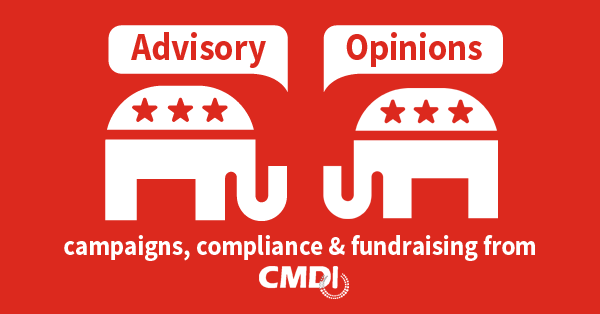Advisory Opinions #15: Per SCOTUS, Proceed with New Rules for 501(c)4 Donors
The world of campaign finance issues has been active in the past couple of weeks, and there are two legal cases that could easily end up before the Supreme Court. Jack and Adrienne discuss recent updates to CREW vs. FEC and Americans for Prosperity vs. Becerra that were featured in Episode 14. They also provide an update on the Senate e-file bill, which President Trump signed on Friday, September 21.
For details on the Senate e-file bill, please see “How Senate Committees Can E-File Their Next FEC Reports.”
Supreme Court: Proceed on Disclosure Rules for IEs made by 501(c)4s
At the beginning of August, the DC District Court struck down a FEC regulation from 1980 that exempted 501c4 groups from disclosing donor information when the organization makes independent expenditures. While the lawsuit was CREW vs. FEC, the case involved IEs made by Crossroads GPS in 2012.
Judge Beryl Howell issued a 45-day stay from August 3 to give the FEC time to issue new guidance. The stay expired on Friday, September 17. That day, Crossroads GPS asked a three-judge panel at the DC District to extend the stay. On Saturday, the Court declined. Crossroads immediately made an emergency appeal to the Supreme Court, and Chief Justice John Roberts responded with his own stay within a few hours.
While Roberts baffled reporters and watchdogs for a couple of days, his actions were cleared up on Tuesday, September 18 when he vacated his stay after referring the matter before the entire Supreme Court.
This means the ruling in the DC District Court will go forward and overturn the FEC regulation from the early 1980s. The rule exempted 501(c)4 organizations from disclosing donors when they make IEs. Up until now, they were only required to report their donors when the contribution was earmarked specifically for them.
What happens in the short-term?
The FEC must issue new guidance for 501(c)4 organizations that make IEs. However, it is unclear what is required for this cycle since the election is weeks away. Many questions remain that the FEC will need to answer.
Ninth Circuit Requires Nonprofits Disclose Donors to California
Note: See the shownotes for Advisory Opinions #14 for additional information on Americans for Prosperity vs. Beccera.
In 2013, California started requiring nonprofits to submit their IRS Schedule B forms to the state attorney general. At the time, now-Senator Kamala Harris was the attorney general and pursued Americans for Prosperity for not disclosing this information. AFP and Thomas More Law Center then sued the state.
In 2016, a federal judge in Los Angeles agreed with them and struck down the law. This month, the Ninth Circuit ruled in favor of the state. Because the IRS required the same information, it wasn't a burden for California to do the same. Per Politico:
“To the extent the district court found actual chilling or a reasonable probability of harassment from confidential disclosure to the Attorney General, those findings are clearly erroneous,” Judge Raymond Fisher wrote In a 41-page opinion, joined by Judges Richard Paez and Jacqueline Nguyen.
“The mere possibility that some contributors may choose to withhold their support does not establish a substantial burden on First Amendment rights,” Fisher added.
However, there is confusion. The case was argued on June 25. In August, the IRS issued new guidance that 501(c)4s and trade associations no longer are required to submit donor information with their Schedule Bs. The Ninth Circuit decision notes the change in their footnotes, but upheld the state law because 501(c)3 and 527 organizations are required still to submit donor information on their Schedule B forms.
At this point, AFP and Thomas More Law Center can either appeal to the entire Ninth Circuit or request the Supreme Court to take the case.
Listen to the episode and subscribe to Advisory Opinions on Google Play, iTunes, and Tunein.
The views and opinions expressed on this podcast are those of the hosts and do no necessarily reflect the policies or positions of CMDI, or any other agency, organization, employer, or company.
